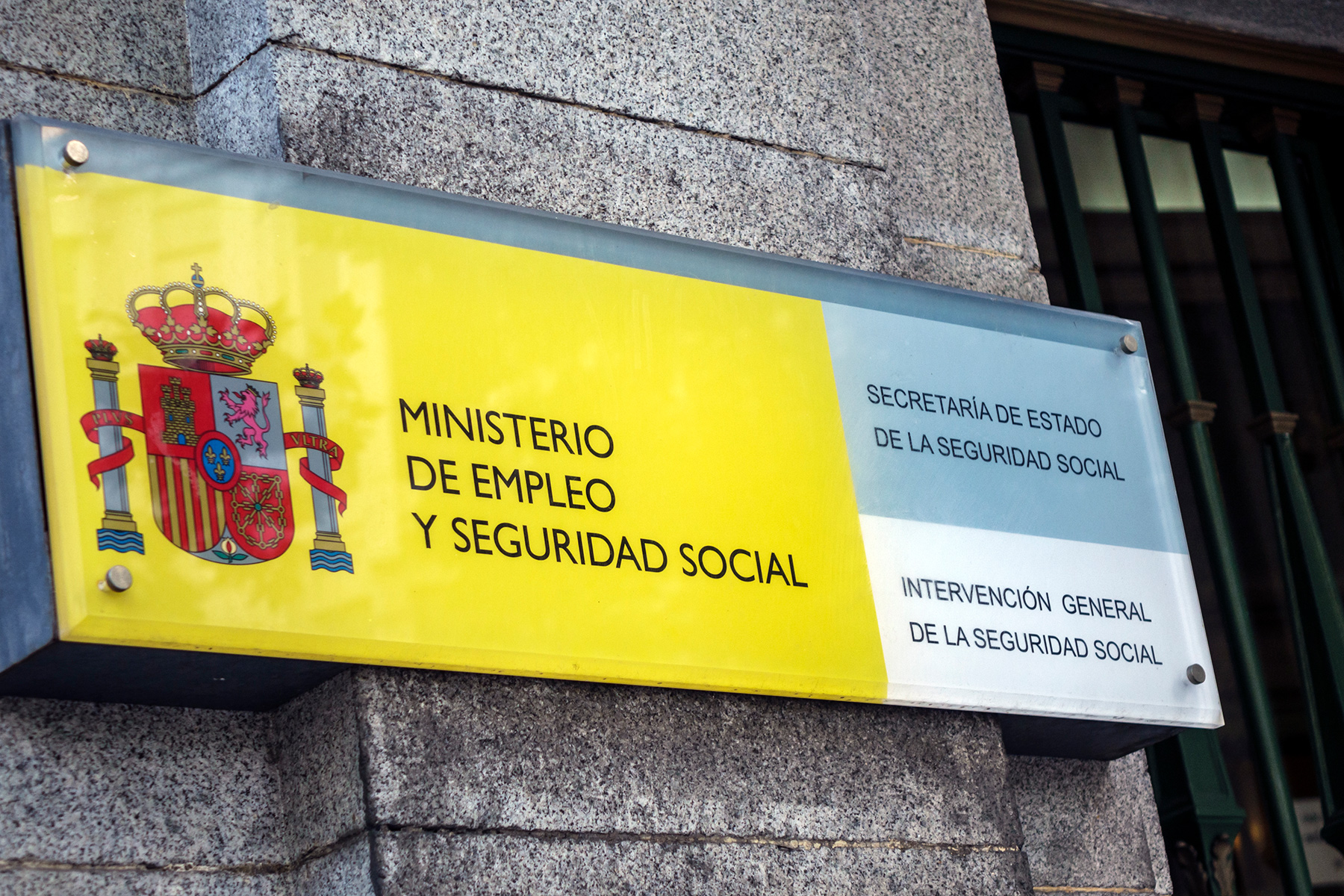If the idea of being your own boss in Spain sounds appealing, then you might want to consider becoming self-employed, or what the Spanish refer to as an autónomo. After all, having the autonomy to decide how and when you work, as well as the clients you work with, can feel empowering. That said, it also comes with a lot of responsibilities; not to mention the cost of administering your own work and facing any volatility without a safety net.
If you have the determination, though, becoming an autónomo in Spain is relatively straightforward. Here’s what you need to know:
- Who can become an autónomo in Spain?
- How to become an autónomo in Spain
- How to set up as an autónomo in Spain
- Legal structures for autónomo s in Spain
- How to deregister as an autónomo
- Administration when freelancing in Spain
- Banking for autónomo s in Spain
- Taxation for autónomo s in Spain
- Social security, health insurance, and pensions for autónomo s in Spain
- Finding work when freelancing in Spain
- Earning a secondary income from freelancing in Spain
- Support, advice, and training for autónomo s in Spain
- Finding office space when freelancing in Spain
- Useful resources
Xolo
Xolo is an all-in-one service tailored for expat freelancers in Spain. Their team of expert accountants and digital business management tools support freelancers in English so they feel secure when setting up and running a business. Sign up for Xolo to take care of your invoicing, expenses, and taxes easily.
Who can become an autónomo in Spain?
Essentially, anyone can become a freelancer or self-employed in Spain. Being an autónomo allows you to carry out your profession or run your own business as if it were a company, but at a much lower cost and with less administration. For these reasons, Spain has attracted many entrepreneurs over the decades. In fact, there are currently around 3.2 million self-employed people in the country, accounting for around 16% of the total population. While the majority of them work in the service sector, many are employed in agriculture and construction.

However, while becoming an autónomo is certainly appealing, it is important to understand that the process you will need to follow largely depends on your country of origin. Citizens of EU and EFTA member states, for instance, can enter Spain and work freely, without the need to apply for a work permit. They can then register themselves as being self-employed upon entering the country; as long as they are of legal age (18 in Spain) or emancipated (in the case of a minor).
Non-EU/EFTA citizens, on the other hand, will face a more demanding process. They will first need to apply for a visa to enter Spain, then a residence permit to stay in the country long-term, and finally, a self-employed work permit that allows them to work as a freelancer.
Another important thing to understand is that Spain is divided into 17 autonomous communities, each of which decides on its own tax rates and social security regime. Therefore, as an autónomo, you will need to abide by slightly different rules, depending on where you choose to live.
The difference between starting a business and becoming a freelancer in Spain
If you want to start a business in Spain, rather than simply work as a freelancer, you should know that there are several key differences. For instance, when setting up a company, there are more requirements in terms of the initial investment, tax, social security documentation, and payments you need to make. You also need to adhere to higher accounting standards, unlike freelancers who are only required to maintain basic accounting.
Having a company also places you within a lower tax bracket of 25%. Therefore, you might want to consider registering a business if you expect to make more than €60,000 a year as an autónomo. Otherwise, you will fall into the highest income tax bracket of 45%. You can read more about taxes for freelancers and the self-employed in Spain in our detailed guide.
How to become an autónomo in Spain
There are essentially two ways to become an autónomo in Spain. You can either apply for a self-employed work visa or modify an existing work permit.
Balcells Group
Balcells Group provides legal advice to individuals, companies, investors, immigration agencies and other intermediary agents. They have over 40 years of professional experience, and have built their firm based on the integration of several generations of lawyers that offer a balanced vision based on experience and modernity.
Naturally, the method that you choose will depend on your current situation; i.e., if you are a non-EU/EFTA citizen living outside of Spain or you are already living in Spain on another visa.
Applying for a self-employed work visa for Spain
As previously mentioned, citizens of EU and EFTA member states can enter Spain and work without a permit. However, if you are a non-EU/EFTA citizen and wish to become an autónomo in the country, you must fulfill the requirements outlined below to apply for a self-employed work visa.

A self-employed work visa will allow you to live and work in Spain for a period of one year. After this, you can renew the visa for two years, and then repeat this until you reach the five-year mark.
After five years of holding the self-employed work visa, you will be eligible to apply for permanent residency in Spain. You can then begin the process of obtaining Spanish citizenship which will enable you to live and work in the country indefinitely.
Legal requirements for non-EU/EFTA citizens
To apply for a self-employed work visa in Spain, you must:
- Not be a citizen of the European Union (EU)
- Be over 18 years old
- Not be in Spain with irregular immigration status
- Have no criminal record; proved by a certificate issued in the countries you have resided in during the previous five years
- Have the appropriate professional qualifications or sufficient experience required for the business activity you want to conduct
- Show evidence of having sufficient financial resources to conduct your business
Required documents
To apply for a self-employed work visa in Spain, you will need to present the following documents:
- A copy of your passport
- Completed and signed application form EX-07
- Professional and academic certificates to prove that you have the appropriate qualifications needed to conduct your business
- Initial investment and proof of investment income
- A medical certificate from a doctor that you have no serious medical issue that is a threat to the public (issues within the last three months)
- Proof of medical insurance that covers any medical assistance in Spain
- A business plan (pre-approved by one of the organizations the Spanish government deems suitable (e.g., ATA, UPTA, UATAE, CIAE, and OPA)
The application process
- Schedule an appointment at the nearest Spanish embassy or consulate in the country you live in or via this website if you are already in Spain. You can also double-check which documents you need (and whether they need to be translated and Apostilled) and confirm the application fee.
- Gather all the necessary documents. If necessary, get them translated by an accredited translator and Apostilled by the correct agencies.
- Go to the Spanish embassy or consulate in-person on the date of your appointment and submit your documents and application. You will also need to pay an application fee (tasta) within 10 days. Note, the exact amount will depend on your country of origin and the embassy you visit.
- Wait for the decision as to whether your visa is approved. You will typically get a resolution within 3 months. However, you may be asked for additional documents. If so, make sure to pass them over immediately so that your application won’t be delayed.
- If your application is approved, you will receive a letter asking you to claim your passport and self-employed work visa at the consulate or embassy. With this, you can legally work as an autónomo in Spain.
Once you have obtained your self-employed work visa, you can enter Spain and apply for a TIE (Tarjeta de Identidad de Extranjero) within 30 days. This is essentially a Spanish Foreigner Identity Card. You will then need to register as an autónomo in Spain (read on for more information on that).

Immigration Lawyer
Ilham Khazouti
Insider Tip: Digital Nomad Visa
This visa is a game-changer for expats. You don’t need to be a full-time freelancer to qualify. If at least 20% of your income comes from Spanish clients or companies, you’re eligible. It’s ideal for living in Spain while working remotely, whether you’re employed or freelancing.
Modifying an existing permit
If you have lived in Spain for at least one year, you can begin the process of switching your residence permit to a self-employed work visa. However, you may have to return to your home country to collect it. If you have remained in Spain for three consecutive years and have held a valid residence permit, on the other hand, you can modify this existing permit to a self-employed work permit without having to leave the country.

Once you have modified your existing permit, you can legally start your own business or register as a self-employed individual in Spain.
Required documents
If you want to modify your residence permit and become an autónomo in Spain, you will need to submit the following documents:
- A copy of your CV
- Completed application form EX-01
- A pre-approved business plan
- Proof that you have sufficient financial means to be finance the project
- A certificate from Spain’s Self-Employed Workers Association (website in Spanish) stating that the project is viable
However, you should check which documents you need to prepare in advance with your local immigration office (extranjería) or consulate.

CEO and co-founder, Entre Trámites
Louis Williams
Insider Tip: Fluent freelancers?
You don’t need perfect Spanish to become self-employed.
I used to think I needed fluent Spanish to register as an autónomo, but that’s not true. With the right help, you can get it done even if your Spanish is limited to “hola” and “gracias.” There are professionals who can guide you through the process, so you don’t have to stress over the paperwork.
The application process
If you want to switch your residence permit to a self-employed work visa, then you must apply for a renewal within 60 days before or 90 days after your residence permit expires. You can either do this online or schedule an appointment at your local immigration office or consulate. You will also need to pay an application fee. Once you have applied to modify your permit, you will typically receive a response (either positive or negative) within three months.
How to set up as an autónomo in Spain
Regardless of your country of origin, every self-employed person in Spain must complete four key steps before they can become an autónomo and begin working in Spain. These steps are as follows:
1. Obtain a foreigner’s entity number (NIE)
NIE stands for Número de Identificación de Extranjero. This is the personal and unique tax identification number that is used to track all financial and legal activities in Spain. This includes dealing with issues such as employment, taxes, social security, banking, starting a business, and getting a Spanish driving license. An NIE is mandatory for all foreigners coming to Spain to work, regardless of their country of origin.
You can apply for an NIE before arriving in Spain at an embassy or at a consular point in your country of residence. If you are already in Spain, however, you can do this at a National Police Station that handles foreign documentation. You can read more about this in our guide to getting an NIE number in Spain.
2. Register as an autónomo with the Spanish Tax Authority
When you register with the Spanish Tax Authority (Agencia Tributaria), you will also need to register for paying Tax on Economic Activities (Impuesto de Actividades Económicas or IAE). During this process, you will need to make a statement as to what kind of business you are operating. In the case of an autónomo, there are two options: a freelance professional (profesional autónomo) or a self-employed entrepreneur (empresario individual). You will need to choose a category that your work falls into by selecting a code number.
You will also need to complete Modelo 036 or 037 forms – known as the declaración censal – and obtain a personal tax certificate (Impuesto sobre la Renta de las Personas Físicas or IRPF).
3. Open a Spanish bank account
Importantly, you will need a Spanish bank account in order to register with the social security system in Spain. Social security contributions are also deducted automatically from your account. To set one up, you will typically need your NIE number, proof of identity, proof of address, and documentation regarding your employment status. In most cases, you will benefit from opening a separate bank account for business purposes.
4. Register with the social security authority
Once you have registered with the Spanish Tax Authority, you can register for social security through a special regime for the self-employed, called RETA (Régimen Especial de Trabajadores Autónomos), within 30 days. This scheme provides autónomos with several items of social security coverage including incapacity to work due to a common illness or an accident unrelated to work.
Legal structures for autónomos in Spain
When exploring your options for becoming an autónomo in Spain, it is important to understand the legal structures for self-employed people in the country. As an autónomo you can register as one of the following:
Self-employed entrepreneur (empresario individual)
A self-employed entrepreneur is a one-person company. They are the person administering their own work and therefore assume personal responsibility for all its liabilities. This legal structure is more suitable for small businesses that won’t generate large annual income or hire many workers.
Freelance professional (profesional autónomo)
A freelance professional is a person who regularly undertakes work in exchange for remuneration but is not under an employment contract with any employer. A freelance professional carries the same responsibility as a self-employed entrepreneur but will not always operate as a one-person company; e.g., when the work is irregular and income from it does not meet the national minimum salary threshold.
Just like a general partnership (sociedad civil), these two entities face few initial barriers when it comes to setting up. However, there is no distinction between the assets and liabilities of the business owner. Therefore, the owner is personally liable for any debts incurred along the way.

However, if you want to separate your personal and business assets, then you will need to register a sociedad limitada, or a limited company. This requires an initial investment of €3,000 and your liability extends only as far as the investment you have made. While the bureaucratic process is similar to the one for self-employed entrepreneurs, it is more complex as businesses need to go through additional registrations.
How to deregister as an autónomo
If you no longer work as a freelancer, then you should formally deregister from the system. If you fail to inform the tax and social security authorities, then your account will continue to be charged for monthly social security payments.
To deregister, you will need to file Modelo 036 or Modelo 037 forms with Agencia Tributaria and leave the special scheme for self-employed or self-employed workers (website in Spanish). This confirms that you are no longer paying into the social security system through the scheme. However, at the end of the last fiscal year of your freelance activity, you will still need to file an annual income tax and VAT return.
Note, if you decide to register again, doing so within the 24 months following your deregistration will make you ineligible for reduced rates of social security contributions.
Administration when freelancing in Spain
As an autónomo, you are responsible for the administration of your work, including managing invoicing and tax returns. You must keep your accounting records according to the basic standard required by Spanish law. In most cases, you are responsible for the quarterly filing of tax and VAT returns. Furthermore, you need to keep track of your monthly social security payments (although they are deducted automatically).

As a self-employed worker in Spain, you also need to issue proper invoices. You must keep accounting records of income sources and documents for your business expenses. Fortunately, though, many business expenses are deductible under Spanish tax law.
In order to conduct many of Spain’s required administrative tasks online, you will need to apply for an electronic ID called a Digital Certificate (Certificado Digital). You will also need to download some software to your computer to get started and have your NIE handy.
Banking for autónomos in Spain
While you are under no legal obligation to open a business bank account as a freelancer in Spain, having one can save you a lot of trouble. For instance, it makes it easier to set up social security payments and insurances. A business bank account also allows you to keep track of business expenses and provides a better overview of your finances. Some banks may offer extra perks for those starting out in the small business world. As such, it is worth taking a moment to compare the offers.
Thankfully, most major Spanish banks and international branches usually provide English-speaking services and adjust their offers to cater to expats. This includes things like international money transfers, favorable conversion rates for currency, and non-resident accounts.
Taxation for autónomos in Spain
Spain requires autónomos to pay personal income tax (Impuesto sobre la Renta de las Personas Físicas) and Value Added Tax (Impuesto sobre el Valor Añadido or IVA). Personal income tax rates vary between 19% and 47%, and the exact rate depends on the region of Spain you live in.
As an autónomo, you have to file income tax documents and pay an advance tax of 20% quarterly (in January, April, July, and October). Additionally, you will need to file an annual tax return in the period between April and June.
Importantly, you will need to add a Value Added Tax (VAT) to each invoice that you send to your customers; when billing them, you are effectively the tax collector for the government. Every quarter, you will need to declare the amount of VAT that you have collected and paid (within business expenses). You will then pass along the difference to the Agencia Tributaria; you can do this online.
Social security, health insurance, and pensions for autónomos in Spain
All workers in Spain must contribute to the social security system. In the case of autónomos, they are registered with RETA (website in Spanish). The benefits include access to public healthcare, maternity and paternity leave, and state pensions. However, social security in Spain doesn’t cover unemployment or work-related illnesses or accidents. In these cases, you will need to arrange separate insurance. Insurers that offer this in Spain include INSURCEO.
Most self-employed workers in Spain pay higher contributions than employed workers since they pay a fixed rate. They also pay one of the highest rates in the EU. The Spanish government currently gives autónomos two options: paying social security contributions using a minimum (€944.40) or maximum (€1233.20) salary base.
You can determine the monthly payment by applying a flat rate of 31.6% to the salary base of your choice (32% in 2022). The Spanish authorities will deduct the contributions each month from the bank account that you used when registering as an autónomo.
Benefits for new autónomos
For the first 12 months, a newly self-employed person can pay a flat fee of €60 a month. For the next six months, they are eligible for a 50% reduction. Then, they can claim a 30% reduction for the subsequent six months. All in all, it will take two years before the self-employed worker starts paying full social security contributions.

Those who are re-registering as an autónomo in Spain are eligible for a flat rate and deductions provided that three years have passed since they officially worked as a self-employed individual.
Social security changes for autónomos
The social security system for autónomos is undergoing reform. Under the proposed changes, self-employed people will pay one of 13 different social security payment amounts, depending on how much they expect to earn. The contribution amounts within these brackets will range from €90 to €1,220 per month. Notably, many freelancers will likely pay higher monthly contributions than they did under the previous system. If approved, the government could introduce the new rates as early as 2022.
Health insurance
Anyone living and working in Spain can access state healthcare, free of charge, as long as they pay into the state social security system. The social security contributions fund the state healthcare system in Spain. You will need to register for treatment and apply for a health card (tarjeta sanitaria individual or TSI). Furthermore, citizens of non-EU/EFTA countries may be required to obtain private health insurance as part of their visa application.
You can compare private health insurance providers in Spain and get free health insurance quotes on our website.
Some of the largest private health insurance companies in Spain include:
Pensions
Self-employed workers can receive a pension if they register and pay into Spain’s social security fund. After 15 years of contributing to the system, you may be eligible for the minimal state pension; on the condition that at least two of these years were within the 15 year period before you plan to retire.
The lowest state pension is 50% of the maximum payout. You can calculate this on the basis of how many years you have worked and how much you earned. You will receive your pension payments in 14 installments over the course of the year. The minimum payment is €642.90 and the maximum is €2617.53.
Self-employed workers are responsible for paying all of their contributions, instead of sharing the burden with their employer. As a result, autónomos personally pay more towards their Spanish pension than employed workers do.

Notably, expats from EU/EFTA countries are in a better position when thinking about their retirement in Spain. They can transfer social security contributions made in their home country to the Spanish social security system. This is because Spain has bilateral agreements with numerous other countries that make this move possible. For self-employed expats, this will be calculated pro-rata and paid out once you reach the legal pension age.
If you don’t meet the conditions for the state pension as a self-employed worker, then you will have to rely on private pensions. Those are voluntary and the conditions differ. However, the responsibility for setting them up rests on you – the autónomo – and will add to your costs since you still have to pay into the state social security system.
Finding work when freelancing in Spain
Relationships are central to Spain’s business culture. As such, you might find that much of your work as a self-employed person comes from your professional network and word of mouth. Getting to know a business contact in Spain can often involve a lunch or dinner meeting. In this case, it is generally a good idea to keep the conversation light until the end of the meal.
Targeted searches on Linkedin, recruitment agencies, and job boards are good sources to find work in Spain. You might also benefit from adapting your CV and interview techniques to suit the Spanish business environment.
Earning a secondary income from freelancing in Spain
Freelancers can also enter into work contracts on a part-time or a full-time basis. Being an autónomo and a paid employee of a company at the same time is a situation known as pluriactividad. This can benefit workers when it comes to paying social security contributions.
Under Spanish law, if you contribute to the system twice, and your combined social security contributions are in excess of €13,822.06, then you are automatically qualified for a 50% return of the excess amount.

A self-employed worker who undertakes a full-time job is also eligible for certain reductions in social security contributions. A 50% reduction in the first 18 months brings the monthly payments down to a minimum of €133.52, and a 25% reduction during the following 18 months to €200.28.
Undertaking a part-time job while being an autónomo can also lower your social security contributions. For instance, a 25% reduction in the first months lowers the monthly payment to a minimum of €200.28 and a 15% reduction in the following 18 months to €226.94. In this case, the part-time contract needs to exceed 50% of a full-time position. However, self-employed workers can only choose one of these options and they can’t be applied at the same time as the preferential flat fee for new autónomos.
The flat rate of social security is generally the most beneficial for self-employed workers, especially if you are a man under 30 or a woman under 35. On the other hand, pluriactividad reductions can be beneficial for a full-time worker who is planning to be an autónomo for at least three years.
Support, advice, and training for autónomos in Spain
The national and local governments in Spain have taken the Covid-19 crisis seriously in terms of helping small businesses and self-employed workers. From payment deferrals and rent to the easing of social security contributions, there have been a number of measures to assist those who saw their income drop as a result of the global pandemic.

If you need help setting up a business in Spain or completing your Spanish tax returns as a freelancer, then you can hire a gestor; a type of business manager who acts as a liaison between you and the Spanish bureaucracy. You can search online to find a gestor.
There are also plenty of firms working in finance or law that can advise you on the process and help you file your paperwork, including:
Spain offers government-funded vocational training courses for both employees and those who are unemployed, as well as counseling programs for self-employed workers. However, this offering may vary from one autonomous community to the other.
Freelancers can also enroll in digital courses, such as those offered since 2019 by the State Public Employment Service of Spain (SEPE) and the State Foundation for Training in Employment (Fundae). Those organizations provide a range of training options, including free courses in subjects ranging from digital marketing, programming languages, e-commerce, and cybersecurity.
Finding office space when freelancing in Spain
The co-working model is popular in Spain, especially in big cities. Freelancers and digital nomads can choose from a number of affordable co-working spaces adapted to their needs.

There are numerous benefits to operating in a co-working space, including networking opportunities, lower costs, and a sense of community. Furthermore, you might be able to deduct the cost of your office space from your Spanish income taxes.
Useful resources
- State Public Employment Service (SEPE)
- Foundation for Training in Employment (Fundae)
- Spanish Tax Authority (Agencia Tributaria)
- Self-Employed Workers Association (website in Spanish)













